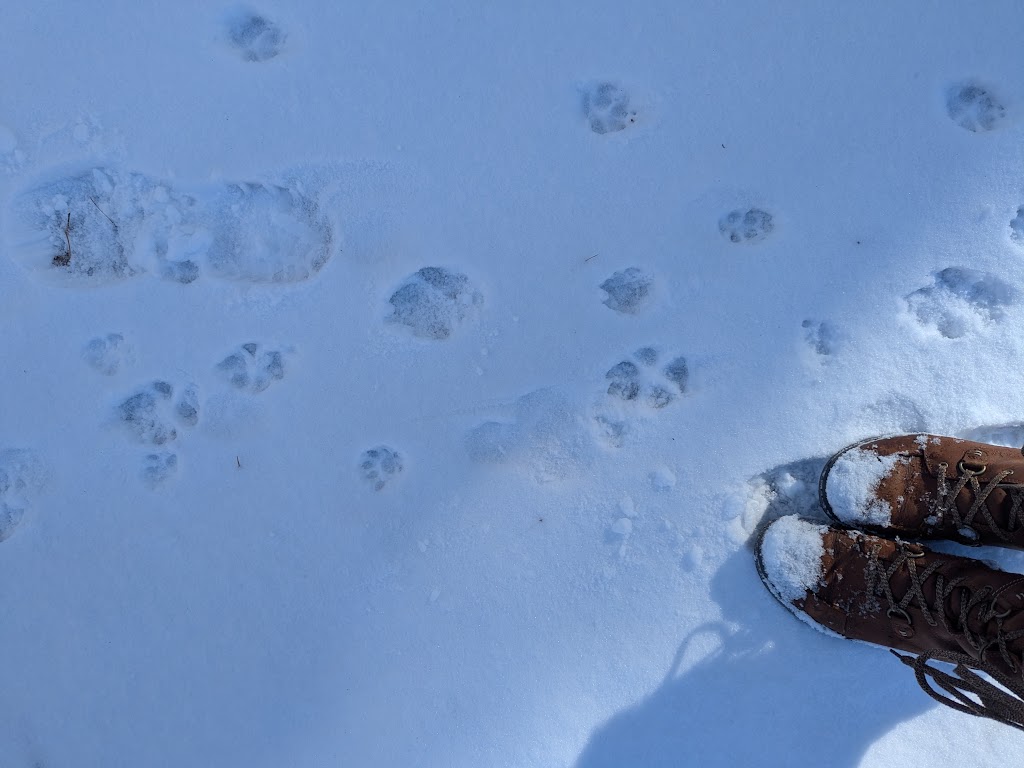Hibernation is always on my mind, particularly in the season when it’s at least somewhat socially acceptable. This week I’m thinking about hibernation in terms of the Tarot card Strength, which has an image of a woman holding the mouth of a lion. Whether she’s shutting it or keeping it open, I’m not sure. Strength appears as the 8th card in RWS’s Major Arcana, in between the Chariot and the Hermit, and begins the row of Self, having turned the corner from the Chariot in the world of Spirit. This card is a test of self which suggests an inward turn—not a full inward turn like the Hermit, as one might expect when thinking about winter hibernation, but a turn toward self nevertheless; and this turn inward suggests movement, for to turn is an action.
My first inclination is to think strength is needed to combat against the forces that demand you come out of hibernation before you’re ready, but it’s more complicated than that. Strength demands a kind of balance which reveals itself in the leminscate eight (both in the image and, at least for this Tarot card system, in the fact that Strength is the 8th card), and to maintain balance one needs movement (interestingly, that’s also an essential factor in the Justice card which can also be the 8th card depending on one’s system). As I stand in tree pose, I am not perfectly still. My toes clench and unclench while my eyes cling softly to my drishti. My mind begins to wander, I have some evaluative thought about myself, and my balance shifts. Even my thought’s movement changes my balance, which I am constantly fascinated by. I return my focus to my breath, I root into the ground through my yoga mat, I feel myself pulled to the sky with my raised hands. A constant above and below reach (movement) amidst a steady rootedness.
Trees move in their rootedness: their roots seek out more clutches to the earth, deeper and farther from the trunk. Their trunk sways above roots that slowly seek; sometimes the heartwood creaks eerily. Branches rattle; I am a winter tree that has stopped growing above, and only slowly grows below. Deciduous trees hibernate. “Resting but ready” as Michael Snyder in a Northern Woodlands blog post describes it.
Strength is a kind of resting but ready. And I guess I’m at that point right now. I lost my foliage in fall and once the fall semester ended and I turned all my grades in, I became dormant. I decreased my social time and I stayed home. I didn’t expect much of myself, at least in some respects; in others activities increased, such as a blog a day for 24 days in a row (whew!). Christmas (Witchmas) came and went, along with the New Year festivities, and even then I rested. I didn’t seek change. I didn’t feel the need to make myself new, for as Alexandria Peary points out in Prolific Moment, change has already occurred without my needing to do anything. In contemplating the need to be still in winter, I recall the Yogi Witch and her blog post about January: “There’s no rush to bloom,” she says, “instead, focus on planting the seeds of your intentions.”
Holding back is a kind of strength. Waiting is a kind of strength (to briefly return to the subject of my 24-day-posts). It’s easier to slip into mindless activity. It’s easier to go along with the whole new year’s resolution thing and take action now without first preparing your soil, without first clearing the ground of its weeds for something new to grow. Just do it, as we like to say in the US.
Andrea Gibson’s poem “Instead of Depression” offers a quiet resistance to “the alarm/of the world”: “Imagine the darkness is a cave/in which you will be nurtured/by doing absolutely nothing.” (https://poets.org/poem/instead-depression) Renaming something powerful like depression takes a deep strength. A silent resistance to the mindless demands of our fast-paced world takes a deep strength—and, as Holly Haworth points out in her Substack SPELLS, sometimes being “unreachable” (by, say, not answering emails for a period of time) is “not a privilege but a goddess given right”.
The Strength card, and writing through the idea of strength in hibernation, does lead me back to my original thought: resist the madness that demands we never stop; but I’ve found nuance to it. Hibernation is a kind of practice that needs strength of self resistance, for it’s not the outside world alone that we’re responding to. We have our own inner lions we must face at the same time. But by renaming, say, depression to hibernation, we can use our lions as a source of strength itself rather than as something that works against us. And this of course can be said in Jungian terms by calling our lions our shadow. When we embrace our shadow we become more wholly ourselves.
When I stand in tree pose, it is a kind of self-resistance that keeps me upright. It is a kind of self-resistance that keeps my mind on my breath.

